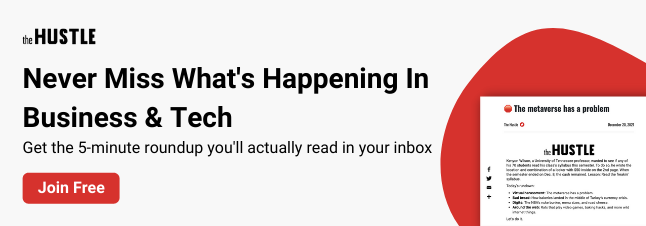“Productive” and “procrastination”: two words you'd never expect to be used in the same sentence. Yet there is a way to procrastinate without hurting your productivity (too much, anyway).

That’s all thanks to a concept known as productive procrastination, which business owners and professionals use to turn their bouts of procrastination into productive moments instead of purely wasted time.
So the next time you're not looking forward to an assignment or project, you can use this method to make the most of your procrastination.
What is productive procrastination?
Productive procrastination, also called structured procrastination, is a technique where you intentionally delay less important or less urgent tasks by focusing on activities that are beneficial for your personal or professional growth.
For example, instead of immediately tackling a non-urgent task, you might spend time brainstorming creative ideas to solve problems or learning about the latest trends and advancements in your industry. The idea is to make the most of your procrastination time by doing valuable tasks that contribute to your overall development.
Sure, you might not be “working” per se. But you’re still being productive through professional development while also giving yourself the break you need before you tackle the work you’re putting off.
Benefits of productive procrastination
Productive procrastination can be a game-changer for your productivity and personal growth. By strategically delaying less important tasks and focusing on activities that bring more value, you can unlock a world of benefits that go beyond simply checking off your to-do list.
Let’s explore the key benefits of incorporating productive procrastination into your daily routine:
- Sparks creativity and innovation: Taking breaks from immediate tasks to engage in activities like brainstorming or exploring new ideas can ignite your creative thinking and lead to innovative solutions. For example, while procrastinating on a report, you might spend time mind mapping, which could inspire a fresh perspective that you carry into your next project.
- Enhances knowledge and skill acquisition: Using productive procrastination to learn new concepts or acquire new skills gives you a chance to expand your knowledge that you can leverage in your position. For instance, while delaying a non-important task, you can read industry articles or take an online course, improving your expertise.
- Improves time management and prioritization skills: Consciously choosing which tasks to delay and which productive activities to engage in develops your time management and prioritization skills, which are essential for business owners and managers. For example, while postponing a non-urgent task, you might use the time to create a detailed schedule or plan for the upcoming week, ensuring you allocate time effectively and prioritize important tasks.
- Reduces stress and burnout: Allowing yourself breaks from intense work through productive procrastination can reduce stress and prevent burnout.
Remember, productive procrastination isn’t about avoiding work altogether, but filling your procrastination time with the right activities.
Examples of productive procrastination
Not sure what you can do that’s productive while you hold off on completing more important tasks? Here are several ideas:
Engage in creative activities that stimulate problem-solving skills
Instead of mindlessly scrolling through social media or watching random videos, you can use your procrastination time to engage in creative activities that stimulate problem-solving skills.
Example: Brainstorming ideas, doodling, or engaging in creative writing. These activities can help you think outside the box and develop innovative solutions to challenges.
Research and learning about industry trends and advancements
Rather than putting off important tasks by binge-watching Netflix or YouTube, you can use your procrastination time to research and learn about industry trends and advancements.
Example: Reading articles, watching educational videos, or listening to podcasts related to your field. Staying updated on the latest developments enhances your knowledge and can help you stay ahead in your industry.
Network and build professional relationships
Networking connects you with potential mentors and colleagues, allowing you to build relationships that you may be able to leverage in the future.
Example: Reaching out to colleagues and industry experts, attending virtual networking events or conferences, or participating in online forums and communities. Building a strong professional network opens opportunities, provides valuable insights, and supports career growth.
By incorporating these productive procrastination activities into your routine, you can make the most of your procrastination time and contribute to your personal and professional growth.
Dangers of productive procrastination
There’s a potential downside to productive procrastination if you’re not careful. Here are common challenges to watch for and how to overcome them.
Excessive time spent on nonessential tasks
While productive procrastination can be a powerful tool, it’s also easy to get carried away. If you don’t mind your time, you could end up wasting hours on tasks that aren’t moving your projects forward.
Use timers to calculate how much time you spend on essential and nonessential tasks. This will reveal how much time you need to complete your important projects, and determine how much time to allot to less important tasks.
False sense of productivity without accomplishing critical objectives
Productive procrastination can sometimes create a false sense of productivity. Sure, you’re engaging in activities that are productive in nature, but are they really helping you accomplish critical objectives?
Evaluate the nonessential tasks you spend time on and see if they push your main projects forward, even if it’s a little. For example, if you have to develop a social media strategy, you can research and analyze successful social media marketing strategies used by competitors or industry leaders.
Delays in completing urgent or time-sensitive tasks
Another danger of productive procrastination includes delays in completing urgent or time-sensitive tasks. While engaging in productive activities during procrastination time can be valuable, ensure you’re not neglecting tasks that require immediate attention.
Without proper time management and prioritization, you may find yourself pushing important deadlines and compromising on the timely completion of essential tasks.
Self-neglect
Engaging in productive activities during procrastination sometimes leads to neglecting self-care and relaxation. Strike a balance between productivity and personal well-being.
Constantly engaging in productive tasks without allowing yourself sufficient down time can lead to burnout, decreased motivation, and overall decreased well-being. Prioritize self-care and relaxation to maintain a healthy work-life balance.
Overwhelm with tasks and information
Productive procrastination can also overwhelm you with tasks and information. Research, learning, and networking activities can become time-consuming and result in an influx of new data, making it challenging to process and apply everything effectively.
Manage your workload and information intake to avoid feeling swamped, and ensure you can effectively use the knowledge and insights gained from your productive procrastination.
Increased stress and pressure
Increased stress and pressure can occur when you set unrealistic expectations for yourself or constantly feel the need to be productive. It creates a sense of pressure and anxiety.
Set achievable goals by determining how much you can do within a time frame and stick to them. Anything more will cause you to overwork unnecessarily.
Remember, it’s OK to take breaks and prioritize self-care to maintain a healthy mindset and overall well-being.
How to procrastinate productively
Productive procrastination isn’t something that you should necessarily strive for. But if you find yourself regularly procrastinating and want to make the most of your time, use the following to remain productive:
Think critically about the tasks you’re avoiding: If you regularly avoid the same “unimportant” tasks, ask yourself: Are you really the best person to be handling these tasks, or would someone else be better suited to taking them on? This is especially important for managers or business owners, who have a team they can delegate to. Removing the task that triggers the urge to procrastinate may be just the thing you need to be more efficient at the tasks that matter.
Choose tasks that matter: Pick tasks that help you reach your goals. Avoid doing things that aren’t necessary or don’t contribute to your success. For example, if you want to create a new product, spend your time researching and learning about the industry.
Don’t get carried away: If you have important tasks with deadlines, don’t spend too much time on less important tasks. Try the Pomodoro technique to stay on track.
Watch out for stress: If productive procrastination makes you stressed or anxious about the main task, try using techniques like mindfulness to reduce these negative feelings. Focus on your task at hand to calm your nerves and get through it.
Monitor your habits: Which tasks do you tend to procrastinate on? How long does it take you to get started? With these answers, you can plan productive procrastination into your daily schedule. For example, you know it takes an hour to get started on a main project, so you plan something productive, but less intimidating while procrastinating.
Productive procrastination comes with its advantages. However, procrastination of any form removes you from your more important duties. Reducing or eliminating procrastination altogether may be a more suitable long-term goal.
Take time to understand the underlying reasons for your procrastination and find ways to improve your mindset and work methods to make completing work easier and more enjoyable.




![7 Habits of Highly Effective People [Summary & Takeaways]](https://www.hubspot.com/hubfs/7-habits.jpg)








